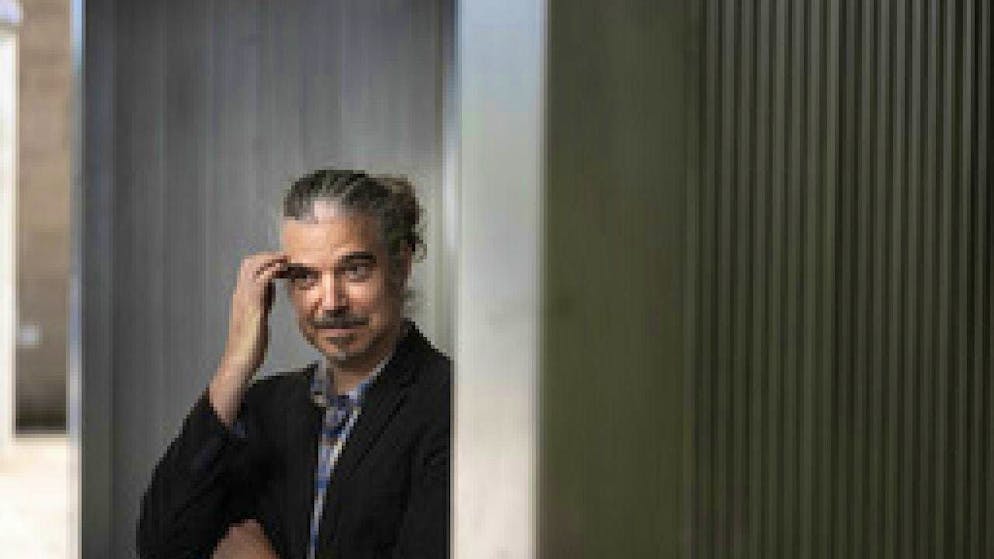Miscellaneous Outrage instead of controversy over Peter Luisi's AI film
SDA
2.7.2024 - 11:36

The screenplay for his new film "The Last Screenwriter" was not written by the successful Swiss director Peter Luisi himself. The author is an artificial intelligence (AI). The excitement is great. The premiere was canceled. But Luisi wants the discussion.
Peter Luisi has only just caused a sensation in Switzerland with "Bon Schuur Ticino". And he has already made a new film: "The Last Screenwriter". This is where the discussion begins. Because he had an artificial intelligence write the screenplay. So is the movie even his?
The film should have premiered at the Prince Charles Cinema in London. But the cinema reacted reservedly. The guests were invited - then the organizer cancelled the screening at short notice.
Controversial topic, sensitive timing
"I was aware from the outset that this was a controversial topic at a sensitive time and that it would not go unnoticed by people," says Luisi in an interview with the Keystone-SDA news agency. Nevertheless, he is surprised by what has happened. Also about the severity. It's been a year since the potential risks of AI were at the center of the writers' strike in Hollywood.
"The Last Screenwriter" tells the story of a screenwriter who realizes that AI can write better than he can. According to Luisi, this is an experiment. The story "is intended to initiate a discussion and has never pursued a commercial goal".
Luisi did not receive any financial support for this film. The work was financed with money from the performance-based film subsidy he received for his comedy "Bon Schuur Ticino".
Contrary to some claims here and there, it is not news that the work can be seen for free via the film website from mid-July, says Luisi. "It was always planned that the film would be available online for free after the premiere, so that it would be freely accessible to all interested parties and hopefully spark discussion." The script and the complete documentation on the making of the film will also be published.
Luisi says that he is constantly being asked to comment as an AI expert. "But I don't have any particular affinity with the subject," says Luisi. "I'm not particularly familiar with it either. I was and am simply curious."
AI does an "amazingly good job"
The Zurich director and producer explains the process of creating the film: "I wrote a sentence about the content and then asked the AI to write a script with characters and dialog." Luisi shot the film in English because the AI is "simply better" in this language. He was pleasantly surprised by the result: "The AI did an amazingly good job." He largely adopted the script, not changing a word. "I just shortened it and made a selection."
He therefore emphasizes: "I am not the author of this film." Apart from the script, the film was made like any other: real actors played on a real set.
It is clear to Luisi that AI causes unrest. Central questions arose: Do we still need screenwriters? Are our livelihoods under threat? But for Luisi, the crucial point is that "censorship is the wrong approach". "If we decide to simply look the other way, AI and the opportunities it offers will not disappear," says Luisi.
Luisi calls for rules and laws
He points to 130 years of film history, but now "we are at a stark point". Something may now change fundamentally: "For the first time, it is possible that a screenplay for a feature-length film no longer necessarily has to be written by a person." But Luisi, who writes screenplays himself, does not fear that he himself will be abolished. AI is "a very mediocre writer. So anyone who can write reasonably well is safe," he says calmly. But that doesn't mean anything for the future: he doesn't know "what will happen if AI develops at the same pace as it has so far".
Luisi admits that he wishes back to the time "when none of this was an issue". But that is not possible. "AI is here, it's here to stay and it will keep us very busy." Against this backdrop, he urges that the discussion be held - "one way or another". It's about tangible and important things: rules, laws, copyrights. "Closing our eyes to this is an understandable approach for me, but a completely wrong one. "*
*This text by Raphael Amstutz, Keystone-SDA, was realized with the help of the Gottlieb and Hans Vogt Foundation.



